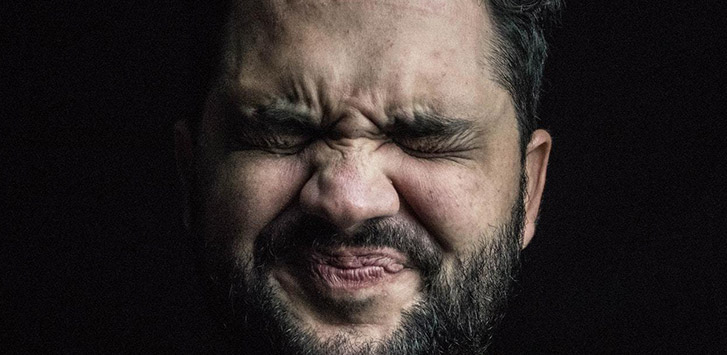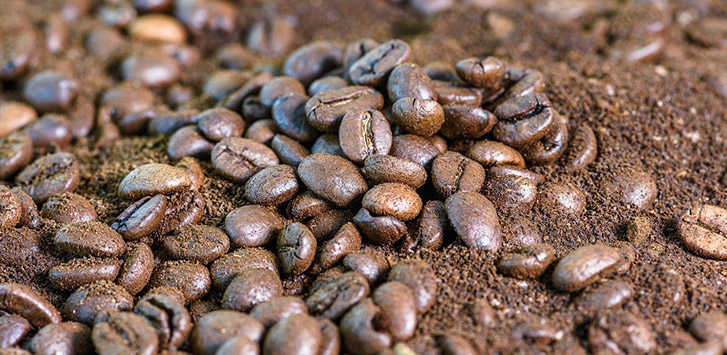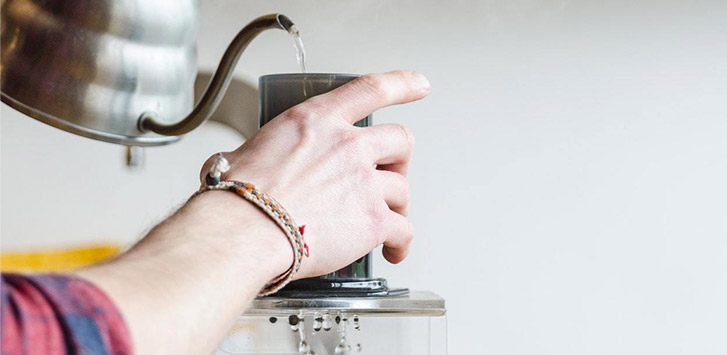
There is nothing more annoying than messing up your morning cup of coffee. After all, the first coffee often sets the tone for the rest of the day. Of the ways that your coffee could be messed up perhaps the worst is that your coffee is sour, making it almost undrinkable.
But how does this happen and what are the ways you can prevent this from happening? It turns out that reasons and fixes are super easy to remedy! Learn more about what makes coffee sour and how to fix it.
Sour vs Bitter: What’s the Difference
While there are coffees that have fruity, acidic flavors that sadly are sometimes mistaken for sourness, however someone mistaking a bean’s inherent fruity flavors isn’t what sour coffee truly is.
Before we get into the specifics, it should be said that within the coffee world that are two opposite ends of what we would call “bad coffee”, the first being “bitter” and the second being “sour”. Both issues are usually the result of poor roasting techniques. In the case of sour coffee, this will result in a cup of coffee that tastes grassy, whereas bitter coffee will taste bitter and acerbic.
The Main Reasons for Sour Coffee
Under Roasted Coffee Beans

Perhaps the number one reason for having sour coffee rests on under roasting the coffee bean. Unfortunately, sometimes people will mistake a light roast coffee for sour coffee if that flavor feels grassy, or under-developed. This roast often works well for a coffee bean that already has fruity flavors which will only add to the perception that coffee is sour.
However, this is more due to having an underdeveloped palate, which isn’t the put-down it sounds like. After all, no one is born with an exceptional palate that can detect the subtle variations between coffee beans from their first sip. All the more excuse to try new coffee beans we say!
That being said, if the bean is under roasted before being considered a light roast, the coffee bean will indeed be sour, grassy, and the flavors present within the bean will be underdeveloped.
Under Extraction

The second major reason for sour coffee often lies in under-extraction during the brewing process. Even if the beans were roasted properly, improper brewing techniques will also result in sour coffee. This occurs when the brewing time is cut short, and the bean’s flavors aren’t properly extracted.
Stale Coffee Beans
Another reason for sour coffee could lay with using old or stale coffee beans. This could be the result of a few different factors; the beans being very old (6+ months), the beans were exposed to moisture at some point after roasting, or the beans are dried out from being open to direct sunlight.
Read our guide about how to properly store your beans: Coffee Bean Storage Guide
Improper Water Temperature
Like under-extraction, using cool (meaning here not hot enough) water during the brewing process will always result in having sour coffee. You may be thinking then “why isn’t cold brew sour”. However, the use of cold water is counter-acted by significantly lengthening the extraction time to more than 10+ hours. Other brewing methods like French press or espresso absolute hinge upon the use of hot water.
Ultra-Fresh Coffee Beans
Interesting another way that you could end up with sour coffee in your cup is using freshly roasted coffee beans that have been roasted for between one to three days which isn’t a sufficient amount of time for the beans to de-gas can result in sour coffee too. We recommend giving the beans at least a week to de-gas before brewing.
Large Grind Size
If you have sour coffee in the morning, it may be due to using a larger grind size than necessary. Having coarse coffee grounds for certain brew methods will yield under-extracted coffee because the surface area is too small for the water to properly permeate and extract the flavors present within the bean throughout the brewing time.
Ways to Fix Sour Coffee (No Matter the Brew Method)
There are a few different ways to fix sour coffee, all of which are fairly easy to accomplish either before brewing or just right before making your coffee – besides correctly roasting your beans. These tips are so simple that you should be able to remedy your sour coffee issue in no time at all, regardless of the brewing method!
Use a Finer Grind
Using an improper grind size for brewing can often exacerbate sour coffee as the coffee bean’s surface is too small for the water to properly extract the flavors inherent within the bean. Paradoxically, using a finer grind size can better allow the water to better extract the flavors. This is especially true regardless of the brewing method. You ensure a proper grind with programmable grinder like a Baratza Encore.
Increase Brewing Time
Another way to avoid having sour coffee in your cup is to increase the brewing time. Increasing the overall brewing time will allow the water to properly extract the flavors. Cutting the brew time prior will result in an under-extracted coffee that is grassy and sour.
Better Balance of Coffee to Water Ratio
Sometimes using too much water or too much coffee grounds will also result in sour coffee as the ratio of water and coffee grounds is off which would yield an under-extracted coffee.
Measure Water Temperature
Using water that’s not properly hot will under extract the beans, resulting in a sour coffee. For most brewing methods, outside of espresso or cold brew, the ideal coffee brewing temperature is between 195-205 degrees Fahrenheit.
Conclusion
Hopefully, we’ve cleared up just how simple getting sour coffee can be and just how simple it can be to fix. With a few quick preventative measures in the morning, you can prevent your morning cup of coffee from being under-extracted and sour. After all, no one wants a bad cup of coffee the first thing in the morning! Happy brewing!